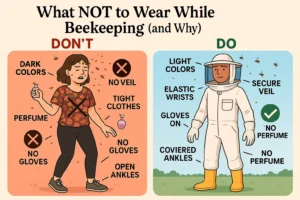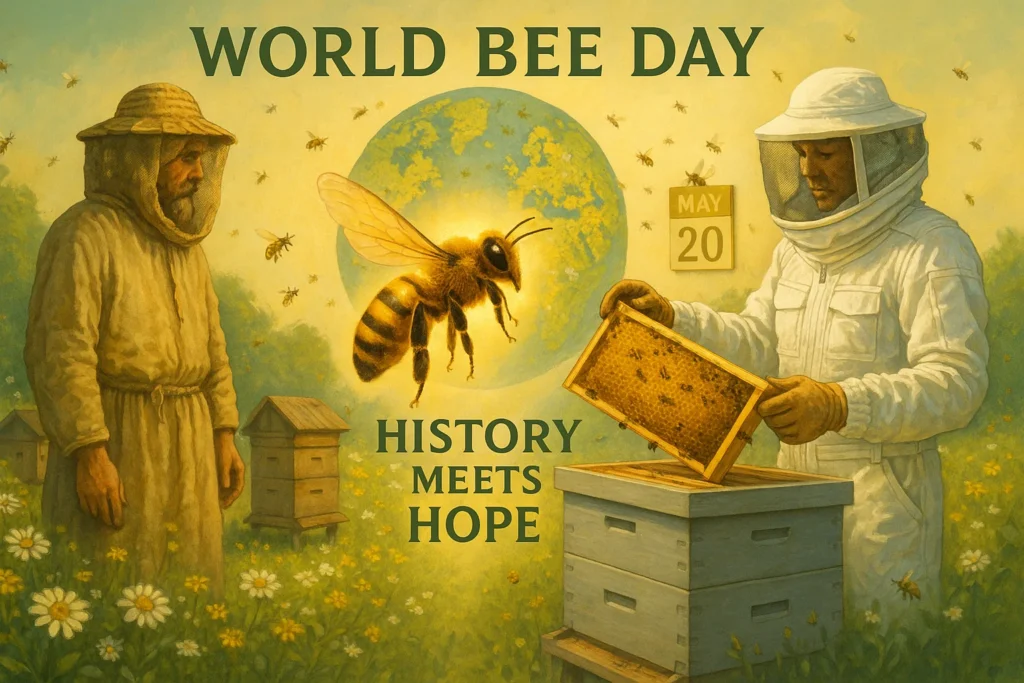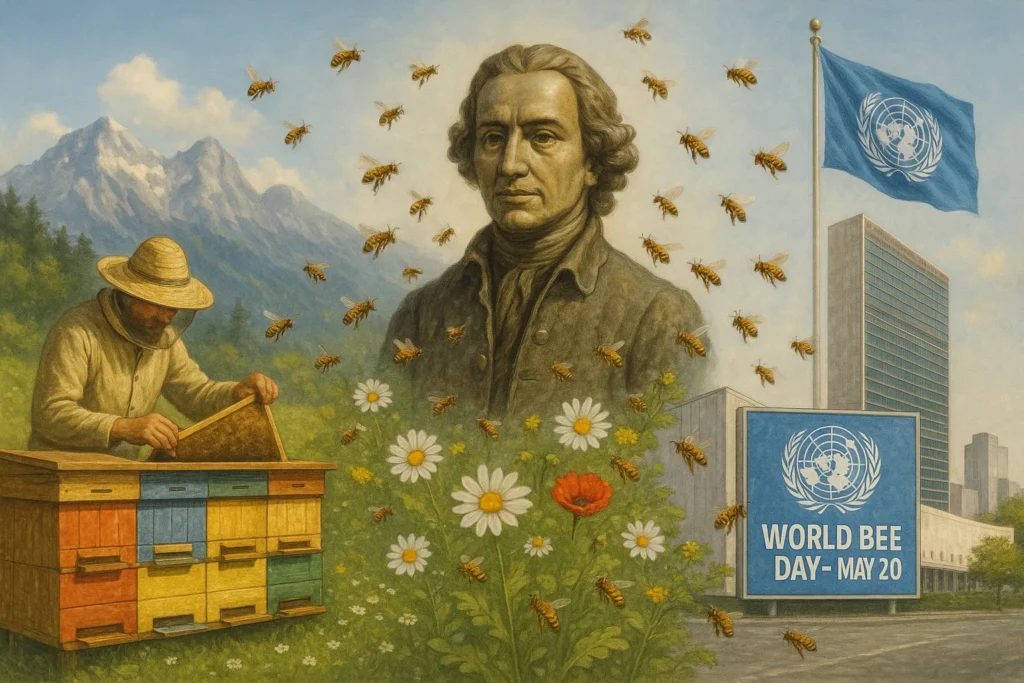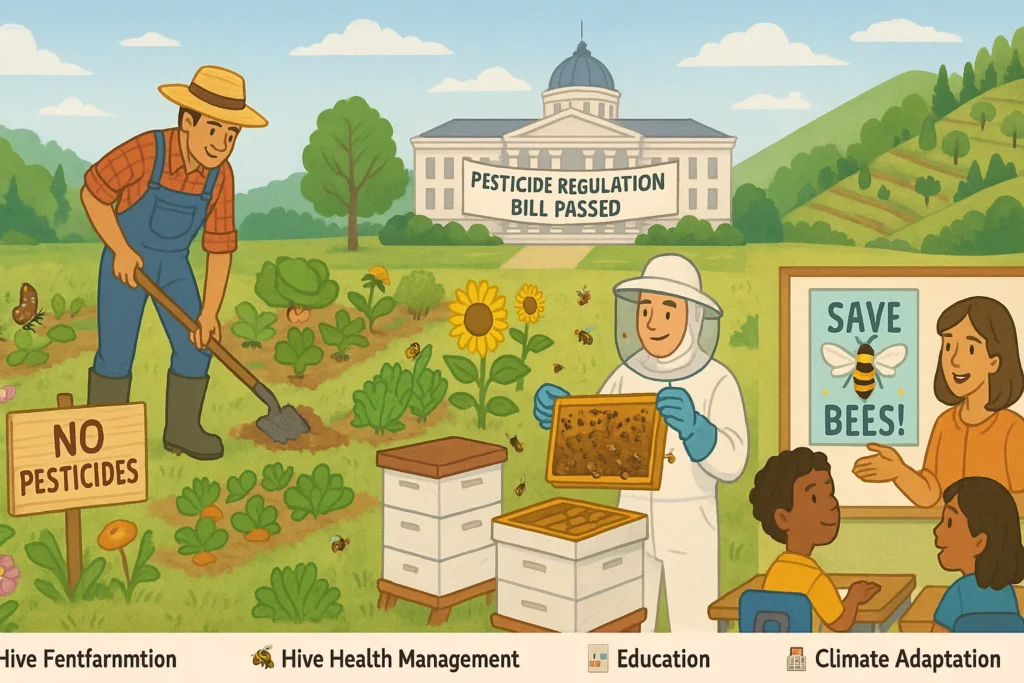
🐝 Gear Up. Stay Safe. Protect the Hive. 🌼

In recent years, the plight of bees has captured global attention. These vital creatures are essential for pollination and ecological balance. However, bees now face serious threats — from habitat destruction to pesticide exposure. To address this growing crisis, the history of bee protection efforts became a driving force behind the establishment of World Bee Day — raising awareness about the importance of bees and other pollinators.
“If the bee disappeared off the surface of the globe, then man would have only four years of life left.”
– Albert Einstein
This blog explores the history, impact, and current importance of World Bee Day. It also highlights why protecting bees should be a global priority.
The idea for World Bee Day originated in Slovenia, a country with deep beekeeping roots. In 2014, the Slovenian Beekeepers’ Association proposed the day to the UN. Their mission was simple: spotlight the essential role of bees in agriculture, biodiversity, and food security.
By December 2017, the United Nations General Assembly had adopted the resolution. They officially declared May 20th as World Bee Day. This date honors the birthday of Anton Janša, a pioneer of modern beekeeping.

World Bee Day is more than a celebration — it’s a global call to action. It reminds us that the survival of bees is deeply connected to human well-being. Let’s break down the main reasons this day is so crucial:
About 75% of our food crops depend on pollinators like bees. Without them, food production would plummet, leading to shortages and economic loss.
Bees help pollinate countless plant species. This, in turn, supports wildlife habitats and maintains ecosystem stability.
Bee pollination increases crop yields naturally. Practices like organic farming and agroecology benefit both bees and farmers.
Bees act as early warning systems. A drop in bee populations often signals broader environmental issues like pollution or climate change.
Bees provide billions in value through their pollination services. Their decline can affect everything from farming to forestry.
Despite rising awareness, bee populations continue to suffer. Below are the key threats:
Urban development and intensive farming reduce bee-friendly spaces. Fewer wildflowers and nesting areas make it hard for bees to thrive.
Chemicals like neonicotinoids can impair bee memory, navigation, and immunity. Many regions are now restricting their use.
Viruses, Varroa mites, and Nosema fungi weaken colonies and make bees more vulnerable to other threats.
Weather shifts disrupt blooming patterns and food sources. Bees must adapt to altered seasons and rising temperatures.
Non-native plants and insects can displace native bee species or outcompete them for food and habitat.
Saving bees requires global cooperation. Governments, researchers, farmers, and citizens must all play a role.
Grow more wildflowers. Protect grasslands and meadows. Even urban gardens can offer food and shelter for bees.
Use natural pest control. Avoid spraying harmful chemicals. Support organic and small-scale farms that respect biodiversity.
Governments must ban or restrict dangerous pesticides. Protecting bees means choosing safer, more sustainable alternatives.
Monitoring hives for disease and investing in resilient bee genetics can keep colonies strong.
Resilient farming practices and forest restoration can help buffer against climate change effects.
The more people know, the more they care. Schools, communities, and online campaigns must spread the message.

World Bee Day is more than symbolic. It’s a chance to act, reflect, and protect. Bees are not just workers in the background — they are key to life as we know it.
By understanding their importance and defending their survival, we invest in our own future. Let’s honor World Bee Day by supporting bee-friendly practices and promoting change.
🛒 Explore GoldenHiveGears’ beekeeping gear — designed with pollinators in mind.
